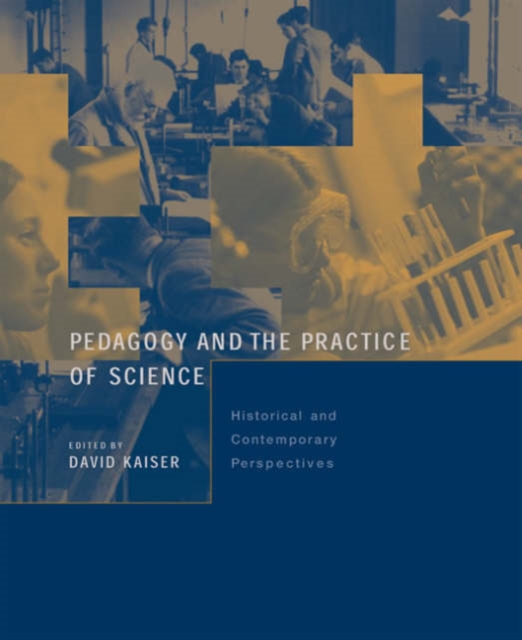
Pedagogy and the Practice of Science : Historical and Contemporary Perspectives Hardback
Edited by David (Germeshausen Professor of the History of Science and Director,, Massachusetts Institu Kaiser
Part of the Inside Technology series
Hardback
Description
Studies examining the ways in which the training of engineers and scientists shapes their research strategies and scientific identities. Pedagogy and the Practice of Science provides the first sustained examination of how scientists' and engineers' training shapes their research and careers.
The wide-ranging essays move pedagogy to the center of science studies, asking where questions of scientists' training should fit into our studies of the history, sociology, and anthropology of science.
Chapter authors examine the deep interrelations among training, learning, and research and consider how the form of scientific training affects the content of science.
They investigate types of training-in cultural and political settings as varied as Victorian Britain, interwar Japan, Stalinist Russia, and Cold War America-and the resulting scientific practices.
The fields they examine span the modern physical sciences, ranging from theoretical physics to electrical engineering and from nuclear weapons science to quantum chemistry. The studies look both at how skills and practices can be transferred to scientists-in-training and at the way values and behaviors are passed on from one generation of scientists to the next.
They address such topics as the interplay of techniques and changing research strategies, pedagogical controversies over what constitutes "appropriate" or "effective," the textbook as a genre for expressing scientific creativity, and the moral and social choices that are embodied in the training of new scientists.
The essays thus highlight the simultaneous crafting of scientific practices and of the practitioners who put them to work.
Information
-
Available to Order - This title is available to order, with delivery expected within 2 weeks
- Format:Hardback
- Pages:440 pages, 18 illus.; 18 Illustrations, unspecified
- Publisher:MIT Press Ltd
- Publication Date:27/05/2005
- Category:
- ISBN:9780262112888
Information
-
Available to Order - This title is available to order, with delivery expected within 2 weeks
- Format:Hardback
- Pages:440 pages, 18 illus.; 18 Illustrations, unspecified
- Publisher:MIT Press Ltd
- Publication Date:27/05/2005
- Category:
- ISBN:9780262112888










